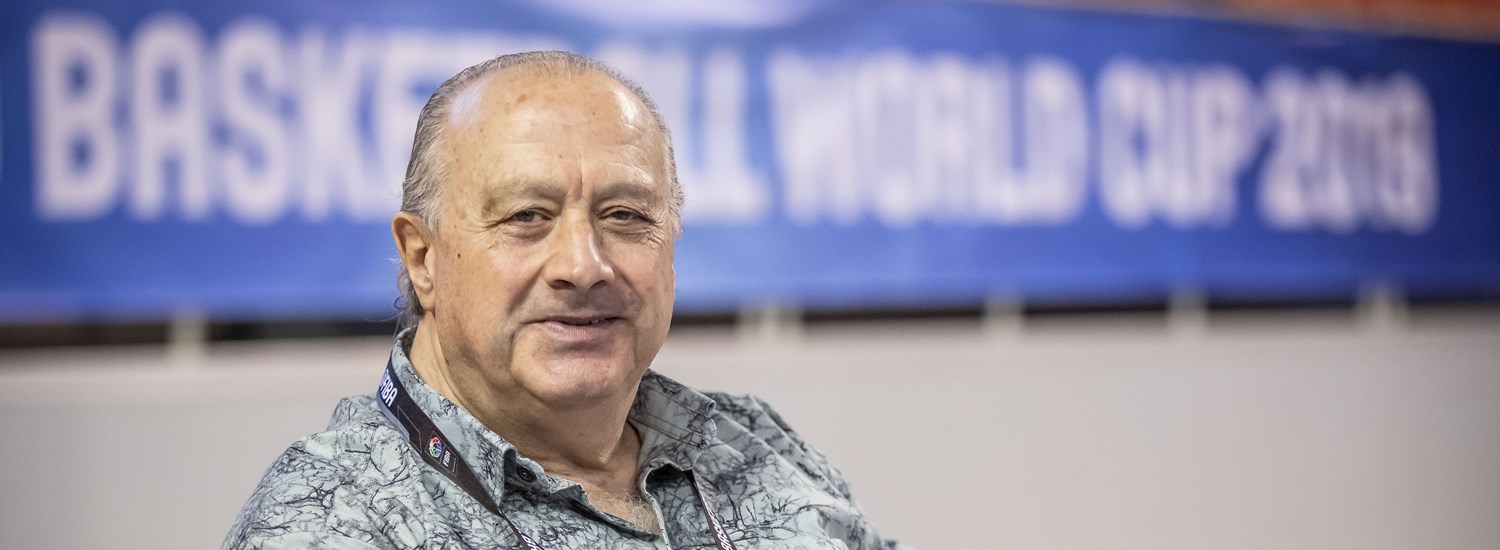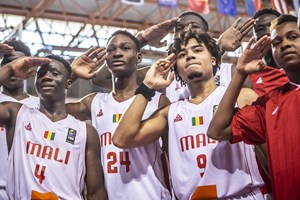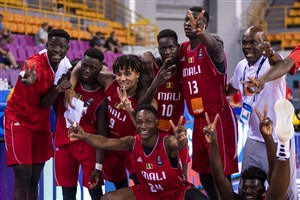
FIBA President Muratore: ''It was important for us to be more inclusive''
HERAKLION (Greece) - The FIBA global summer has started with the FIBA U19 Basketball World Cup 2019 in Crete, Greece. The world's eyes will soon shift to Thailand for the FIBA U19 Women's Basketball World Cup 2019 before the main event, the FIBA Basketball World Cup 2019 in China.
In Heraklion to watch the U19 World Cup, FIBA President Horacio Muratore talked about the development of youth basketball around the world, as well as his expectations for China 2019, the FIBA windows and the expansion of the FIBA World Cup.
You have attended a lot of youth events over your career in the game. You are here in Heraklion for the FIBA U19 Basketball World Cup 2019 and will be in Thailand for the FIBA U19 Women's Basketball World Cup 2019. What do you think about the development of youth basketball around the globe?
Whenever possible, I attend all the events. Only during my term as President, I missed one in Egypt (FIBA U19 Basketball World Cup 2017) for a personal reason. I love all of this, I love the development. This is what I have been doing all my life. In all the steps of my career I always had development as a centerpiece. It was the case in my club, in the association of my province, then with the Argentinean Basketball Confederation for 16 years, South America, America and later with FIBA. I have always thought that supporting youth development is the most important thing and watching all these talents develop fills me with satisfaction.
Now, as President of FIBA, I think these events are the only opportunity to really grow our sport, increasing the number of youth events on all continents. The World Cups are the culmination of a series of events for young people, 14, 15, 16 or 17 years old; And for us, the only way to grow the sport, like any other sport, is to have boys and girls who know how to handle the ball.

This summer is the FIBA Basketball World Cup 2019 in China. What are your expectations for that big spectacle?
This summer in China, I think it will be the culmination of a succession of efforts. FIBA changed the whole competition system two years ago, because we wanted to have more visibility for national teams, playing home and away games during windows. It also gives an opportunity to new federations to emerge and come on the center stage of the game.
I'll give you the example in my region of South America where it was always a matter of four federations going to the major events. The other six couldn't make it. Now, by playing at home, all 10 are really involved in the contention to play the big tournaments such as the World Cups or the Olympic Games. The options are now huge for all of them. We have managed to implement this large project. It is a tremendous success for the overall development of the game. Now we are missing the final part, the tournament itself and I think there was no better country to do it than China.
I am convinced that it's going to be the best tournament in all of history. The Chinese will do a spectacular job. We have some challenges, such as coordinating with eight cities when usually all the attention is on the capital of Beijing, but our FIBA staff, together with the Local Organizing Committee, are doing a spectacular job.

This summer's FIBA Basketball World Cup 2019 will be the biggest ever. What do you think about the expansion of the event and its importance moving forward?
For us, it was very important to be more inclusive, that was our project. To grow from 24 to 32 teams for us has been amazing, having eight more federations play at the World Cup. The bar has been set very high in China and we have already decided to open the tournament up to multiple host countries in the future. For this reason the next one will be in Japan, Philippines and Indonesia in 2023. Japan and Philippines are countries that can organize a World Cup by themselves but this event is getting bigger and bigger. At the same time, Europe started with multi-host events with the FIBA EuroBasket and FIBA Women's EuroBasket and it has brought great to all of us. We want to have tournaments where more teams play and we have achieved this.
Another good idea was to integrate the World Cup in the Olympics qualification process. The seven best at the World Cup, following geographic principles, go directly to the Olympics.
Then the following 16 best teams at the World Cup will play the Olympic Qualifying Tournaments. Eight more teams, two per Region, will join the Olympic Qualifying Tournaments based on sports criteria, their ranking in the FIBA World Ranking presented by NIKE.
The 24 teams will battle it out in four qualifying tournaments of an incredible level. The winners of each tournament will join the seven qualified teams at the World Cup and the host Japan.
FIBA













